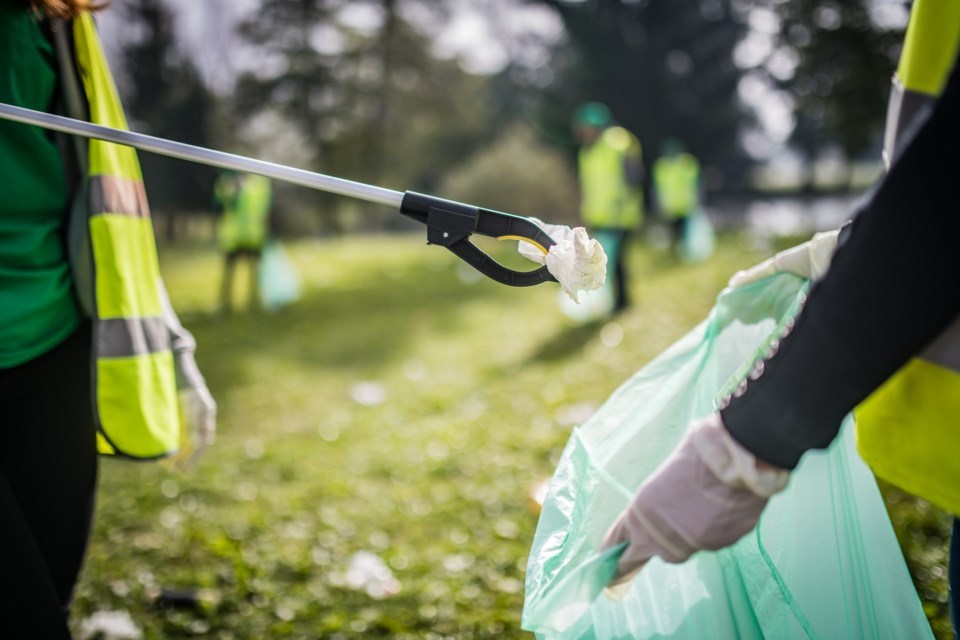Wee electric-green radish leaves pushing up through black soil from seeds my parents planted. Young rhubarb leaves like curled-up sea creatures unfurling in my grandad’s garden. Then, later in spring, a sunshine-yellow marigold flower bursting open much to my delight—the first plant I grew myself, under the guidance of a Grade 1 teacher thoughtful enough to have us kids save tin cans, punch drainage holes in the bottom with a hammer and nail, then fill them with rich prairie soil and a single seed we could watch grow, like we were.
With spring officially here in the Sea to Sky, people are buying up bulbs and seeds like there’s no tomorrow. Can you blame them? Spring has thankfully, mercifully, sprung again, and nothing marks it better than growing something, anything—something quirky or beautiful to look at; something to eat; something that combines both, like edible flowers or weirdly shaped squashes.
All this was not lost on Gaylord Nelson, a U.S. senator from Wisconsin. Fifty-three years ago, he and his main organizer, Denis Hayes (now head of the Bullitt Foundation in Seattle, which focuses on urban ecology in the “Emerald Corridor” from Vancouver to Portland, Ore.) tapped into the anti-war movement to plant the seeds for the first Earth Day. Held April 22, 1970, and every April 22 since, it was close enough to the official first day of spring and far enough into the season that all things “Easter” and “green” would still be on our minds, plus we wouldn’t shy away from protests or anything outdoorsy, given the balmier weather.
CBC has a great report on the first Earth Day, including events on the Canadian side of the border, which saw protestors in Windsor, Ont., carrying signs with slogans like “Lake Erie died for our sins” and singing a modified version of John Lennon’s “Give Peace a Chance” (“Give Earth a Chance”).
Picture the context for that first Earth Day in 1970: People were barely conscious of the need to protect the environment. But one-10th of Americans took part in some kind of Earth Day event. By the end of the year, the U.S. Environmental Protection Agency was set up and all kinds of environmental legislation was passed.
Who says a single idea can’t lead to greater things?
Today, Earth Day is widely regarded as the largest secular observance in the world, with more than a billion people joining in. Earth Day organizers continue to focus on whatever’s needed to keep our planet green and “alive” enough to support the kids of tomorrow—like getting plastic out of public schools. (One child having a disposable lunch every school day generates some 67 pounds of waste—mostly plastic utensils and bags—each school year.) Or picking up plastic and other crap littering our great outdoors.
In Whistler this year—for the 32nd time!—the RMOW will host the annual Pitch-In Day to align with Earth Day. On Saturday, April 23 (the day after Earth Day), join other volunteers and community groups to pick up litter throughout Whistler Valley. Grab your vests and supplies and gather at the Public Works Yard on Nesters Road between 8 and 9 a.m. All morning, crews from the municipal roads department—the official supporter of the event—will collect full bags and hand out free snacks and water to volunteers. Then, from noon until 2 p.m., enjoy a free barbecue at Fire Hall No. 1 in the village, thanks to the Whistler Fire Rescue Service and donations from local grocery stores.
As for all those green efforts sprouting up now, what better way to get started than by learning from seeds themselves? “Learning From Seeds” promises to be a great presentation on April 25 at the Whistler Public Library. Co-sponsored by AWARE, Whistler’s community-based powerhouse for all things environmental since 1989, the presentation is led by Emily Hannah, a graduate of the ground-breaking Permaculture Institute who has loads of experience in regenerative farming.
You’ll learn about the basics of seed-starting, the importance of seed-saving, seeds as the cornerstone of food security, and how important heirloom seeds are for genetic resiliency and diversity in our changing world. Bonus for parents: You can bring your kids with you, provided they’re old enough to appreciate the material. Note that everyone needs to register in advance.
Once you’ve had your eyes opened wide to so many amazing aspects of seeds, “check out” one of the best tools on offer at the library—the seed library.
Seeding a great resource
Two years ago, Nadine White, public services librarian, and Jeanette Bruce, the library’s marketing and programming coordinator, worked with AWARE to start an excellent resource at the Whistler Public Library—a seed library.
Both the April 25 event and seed library reinforce the whole idea of Earth Day. “(They) encourage a more direct and personal relationship to our food cycles—increasing community food security and reducing our carbon footprint by helping community members access affordable and healthy options grown close to home,” says library director Mikale Fenton.
The seed library is located in the “Gardening” section of the library. It’s all very simple. Gardeners check out and donate seeds on their own. No library card needed! And no personal information is tracked. Organic, non-GMO seeds less than three years old are welcome; no bear attractants or invasive species allowed.
But here’s the trick: The seed library was started during the height of the pandemic, so it’s desperate for donations. As you get ready to plant your “garden”—whether it’s a full-on spread or just a pot or two on your windowsill—keep in mind what seeds you could donate. After all, most of us seldom use the whole package. And local landscapers, check out your “extras.” Anything on-hand Whistler’s seed library could use will keep the cycle growing.
Glenda Bartosh is an award-winning journalist who loves to garden. She saves seeds.




